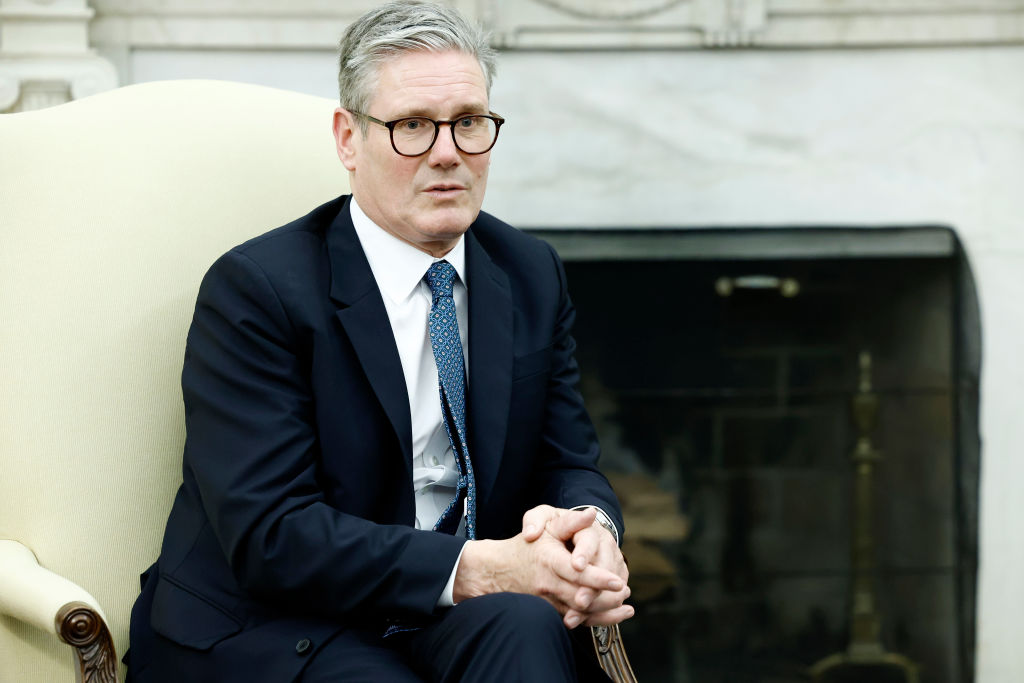How things change in just a few years. In November 2020, Keir Starmer welcomed Joe Biden’s victory over Donald Trump, writing in The Guardian that “the American people have voted for a better, more optimistic future: for unity over division, hope over fear and integrity over dishonesty.”
But in the early hours of Wednesday, as the reality of Trump’s victory in the 2024 election became clear, the Prime Minister issued a terse congratulatory statement on X for the President-elect, and said he looked forward to “working with you in the years ahead”. At Prime Minister’s Questions, he labelled a recent dinner with Trump a “very constructive exercise” — the favoured adjective of the bewildered Trump interlocutor whose hopes for a normal conversation have been steamrolled.
Since 2020, Starmer’s Labour had looked to Biden’s victory and policies as a model for campaigning and progressive governance. In Opposition, Rachel Reeves embraced Bidenomics, citing the “emergent global consensus” on the economy at an event in Washington. Ed Miliband also stated that he aspired to “match the ambition of President Biden’s Inflation Reduction Act” and that he was drawing on advice from the architects of the American plan. David Lammy, meanwhile, courted Biden’s advisors, and even said that “my greatest political friendship is with former president Barack Obama.”
While Labour is angry and anxious about Trump’s return to office, preparations have been made to some extent. Indeed, the party — in Opposition and Government — devoted a lot of energy through 2024 to building relationships with former members of the Trump administration and Republican members of Congress. Ben Judah, a British journalist and think-tanker in Washington, joined Lammy’s team at the start of the year and facilitated meetings with policymakers in the US, including Mike Pompeo and Robert O’Brien — Trump’s former secretary of state and national security advisor, respectively.
And despite his long record of anti-Trump statements, Lammy has sought to build a relationship with incoming Vice President J.D. Vance in particular, who described the then Shadow Foreign Secretary as his “English friend” on a panel at the Munich Security Conference in February. “We’re both from poor backgrounds, both suffered from addiction issues in our family which we’ve written about, both of us are Christians,” Lammy later explained about his friendship with Vance. “I’ve met him on a few occasions and we have been able to find common ground and get on.”
Labour’s relationship with Trump and his orbit has always been precariously contingent on the evasion of two subjects, however. The first was the evident ideological incompatibility between a European social democratic party and a nationalist, conservative movement. When Labour won the general election in July, Vance joked in a speech that the victory meant the UK was now the first “truly Islamist country” to have a nuclear weapon. Lammy dismissed the quip from his “friend”, but the potential contradiction was stark.
Secondly, regardless of how many Trump associates or advisors the Government forms relationships with, it can be all discarded at the whims of an emotional and unorthodox president. In his first term, Trump feuded extensively with Sadiq Khan, the Labour Mayor of London. “He’s a racist. He’s a sexist. He’s a homophobe”, Khan told Politico. Trump, in turn, has called Khan a “stone-cold loser”. Lammy, for his part, has previously labelled Trump “a racist KKK and Nazi sympathiser” and alleged that the Republican “lies more times a day than the average person goes to the bathroom”.
During the presidential campaign, a casual LinkedIn post from a Labour staffer inviting volunteers to support Kamala Harris became the centre of a firestorm. Elon Musk criticised it on X, encouraging the ire of prominent figures on the American Right. Trump’s campaign filed a complaint against the Labour Party, accusing it of “blatant foreign interference” and arguing the request for volunteers created a “reasonable inference that the Labour Party has made, and the Harris campaign has accepted, illegal foreign national contributions”.
Musk, who was with Trump through election night, has not held back in his hostility towards Starmer and the Labour government. Countless officials from the Theresa May and Boris Johnson governments can relay the challenges of conducting diplomacy with as fickle a counterpart as Trump. Personality differences will widen the gulf between the UK and the US on policy, from climate to European security and support for Ukraine. The next few years will provide a severe test of Britain’s “Special Relationship” with the most powerful country in the world.











Join the discussion
Join like minded readers that support our journalism by becoming a paid subscriber
To join the discussion in the comments, become a paid subscriber.
Join like minded readers that support our journalism, read unlimited articles and enjoy other subscriber-only benefits.
Subscribe